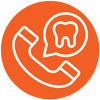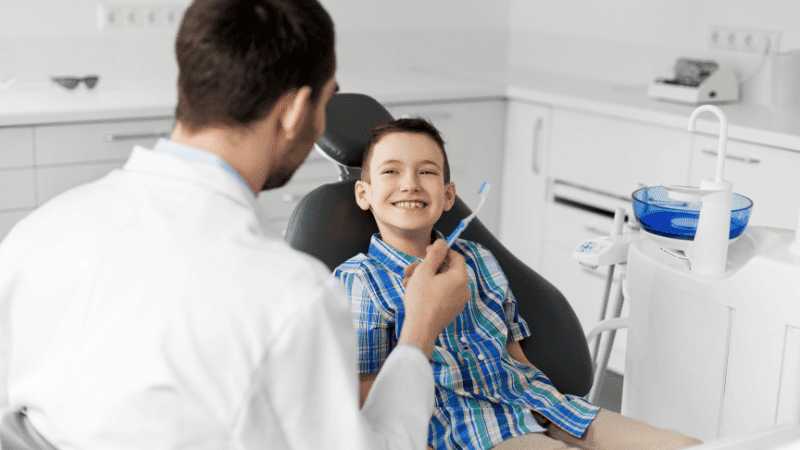Oral Hygiene Tips for Children
Good oral hygiene is essential for children to maintain healthy teeth and gums as they grow. Establishing good dental care habits early on can help you avoid cavities, gum disease, and other dental issues. Here are some essential tips for parents to help their children maintain good oral health and practice effective kids oral hygiene.
Start Early
Begin oral care as soon as possible, even before the first tooth appears. After each feeding, gently wipe your baby’s gums with a damp cloth. When the first tooth appears, start using a small, soft-bristled toothbrush with a tiny smear of fluoride toothpaste.
Apply Toothpaste with Fluoride
Tooth decay cannot be prevented without fluoride. Use a smear of fluoride toothpaste, roughly the size of a rice grain, on teeth under three years old. Use a pea-sized amount for children three to six years of age. After brushing, ensure your child spits out the toothpaste.
Brush Twice Every Day
It is recommended that children brush their teeth at least twice a day, preferably right before bed and right after breakfast to ensure good kids oral hygiene. When they are six or seven years old, or until they can brush effectively on their own, supervise them while they brush.
Teach the Right Brushing Method
Teach your kids how to brush their teeth properly. Use light, circular motions while holding the toothbrush at a 45-degree angle to the gums. Remind them to brush the biting, front, and back surfaces of their teeth. To get rid of bacteria and freshen their breath, remember to brush their tongue.
Floss Daily
When your child reaches the age of two or six, or when their teeth begin to erupt closely together, introduce them to flossing. To make flossing easier and more fun, use kid-friendly flossers. Plaque and food particles stuck between teeth that a toothbrush can’t reach can be removed with flossing.
Minimize Sugary Drinks and Snacks
Sugary drinks and snacks can cause dental decay. Restrict your child’s intake of juices, sodas, candies, and sweets. Promote wholesome snacks such as nuts, cheese, fruits, and vegetables. Choose milk or water over sugar-filled drinks.
Frequent Dental Examinations
Have your child’s teeth examined on a regular basis, beginning around the time of their first birthday. The dentist can keep an eye on your child’s oral health, clean their teeth professionally, and apply sealants or fluoride varnish as preventive measures during regular visits.
Make Dental Care Fun
Make dental hygiene fun and engaging for your child. Use timers, apps, or music to ensure they brush for the recommended two minutes.
Lead by Example
Children frequently mimic their parents’ behavior. Set a good example by maintaining good oral hygiene yourself. Brush and floss your teeth together as a family activity to emphasize the importance of dental hygiene.
Encourage Mouthguards for Sports
If your child participates in sports, encourage them to use a mouthguard. Mouthguards protect teeth from injury during sports such as soccer, basketball, and hockey.
Address Dental Anxiety
Prepare them for dental visits by explaining what they can expect in a positive manner. Read books or watch videos about dental visits to become acquainted with the procedure. Choose a pediatric dentist who specializes in treating children and creating a comfortable environment.
Conclusion
Establishing good oral hygiene habits early in life sets the foundation for a lifetime of healthy teeth and gums. By following these tips, parents can help their children develop a positive attitude towards dental care and maintain excellent oral health. For more information and resources, please visit our Pediatric Dentistry page




